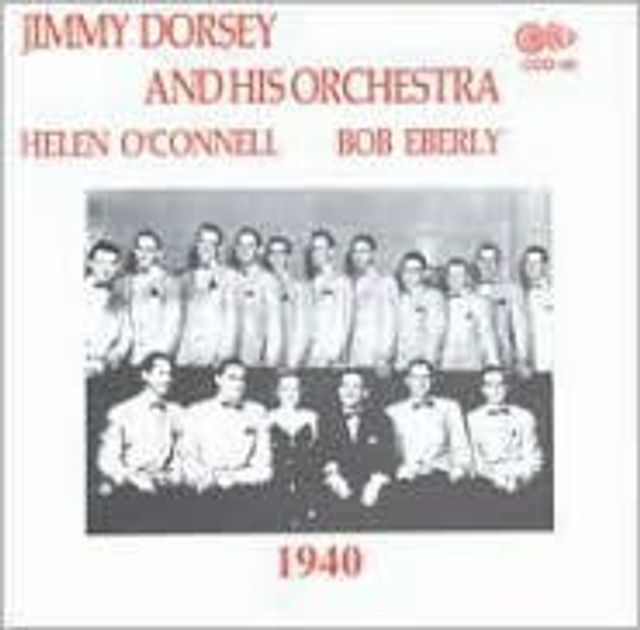Home
1940-1941
Barnes and Noble
1940-1941
Current price: $25.99


Barnes and Noble
1940-1941
Current price: $25.99
Size: OS
Loading Inventory...
*Product information may vary - to confirm product availability, pricing, shipping and return information please contact Barnes and Noble
While
jazz
wasn't technically "against the law" in Paris during the Nazi occupation, the Gestapo could and did harass the population, straining everything through the iron sieve of Nazi ideology. Some individuals were actually arrested and sent away to the camps simply for owning and listening to
records. Certainly all
performers were at risk for creating the subversive stuff in the first place. It all depended on the temperament and preferences of individual Germans in positions of control. Some Nazis liked
a lot. Others, particularly in the SS, despised this "degenerative" music and would oppress those responsible for it. Musicians who were found to be playing
might receive a gratuity, or a beating. Some were placed under arrest. Apprehended
musicians might be sent to work for the Propaganda Ministry, providing
swing
-styled accompaniments for popular dance tunes doctored up with anti-Semitic, anti-
Churchill
, and -- after December 1941 -- anti-American lyrics. Some were simply sent to the camps as enemies of the Reich.
Alix Combelle
seems at first an unlikely candidate for membership in the French Resistance. Yet the very act of associating with Gypsies and Afro-Americans was a form of cultural resistance, as was the making of authentic
records.
Combelle
deliberately chose material originated by
Pete La Roca
,
Johnny Mercer
Isham Jones
Bix Beiderbecke
Ray Bauduc
Jimmie Lunceford
Sy Oliver
, and
Count Basie
. While titles were often changed to mask the original tunes,
was also tailoring the
for French audiences. It's all good-time music with tight arrangements and flashy solos.
Django Reinhardt
is featured on some of the 1940 sides, and his presence should attract those who want to absorb everything the man ever played. But the real reason to obtain this disc is to be able to enjoy the stimulating sounds of Parisian
big-band
-- including a very close cover of
Glenn Miller
's hit
"In the Mood,"
making an incognito appearance as
"Ambiance."
A brisk
"Divertissement"
sounds almost like something out of the
Raymond Scott
book. You've got to hand it to these French musicians. Right under the noses of the German authorities, they listened very carefully to American
, skillfully imitating it while adding some of their own sauce. ~ arwulf arwulf
jazz
wasn't technically "against the law" in Paris during the Nazi occupation, the Gestapo could and did harass the population, straining everything through the iron sieve of Nazi ideology. Some individuals were actually arrested and sent away to the camps simply for owning and listening to
records. Certainly all
performers were at risk for creating the subversive stuff in the first place. It all depended on the temperament and preferences of individual Germans in positions of control. Some Nazis liked
a lot. Others, particularly in the SS, despised this "degenerative" music and would oppress those responsible for it. Musicians who were found to be playing
might receive a gratuity, or a beating. Some were placed under arrest. Apprehended
musicians might be sent to work for the Propaganda Ministry, providing
swing
-styled accompaniments for popular dance tunes doctored up with anti-Semitic, anti-
Churchill
, and -- after December 1941 -- anti-American lyrics. Some were simply sent to the camps as enemies of the Reich.
Alix Combelle
seems at first an unlikely candidate for membership in the French Resistance. Yet the very act of associating with Gypsies and Afro-Americans was a form of cultural resistance, as was the making of authentic
records.
Combelle
deliberately chose material originated by
Pete La Roca
,
Johnny Mercer
Isham Jones
Bix Beiderbecke
Ray Bauduc
Jimmie Lunceford
Sy Oliver
, and
Count Basie
. While titles were often changed to mask the original tunes,
was also tailoring the
for French audiences. It's all good-time music with tight arrangements and flashy solos.
Django Reinhardt
is featured on some of the 1940 sides, and his presence should attract those who want to absorb everything the man ever played. But the real reason to obtain this disc is to be able to enjoy the stimulating sounds of Parisian
big-band
-- including a very close cover of
Glenn Miller
's hit
"In the Mood,"
making an incognito appearance as
"Ambiance."
A brisk
"Divertissement"
sounds almost like something out of the
Raymond Scott
book. You've got to hand it to these French musicians. Right under the noses of the German authorities, they listened very carefully to American
, skillfully imitating it while adding some of their own sauce. ~ arwulf arwulf


















